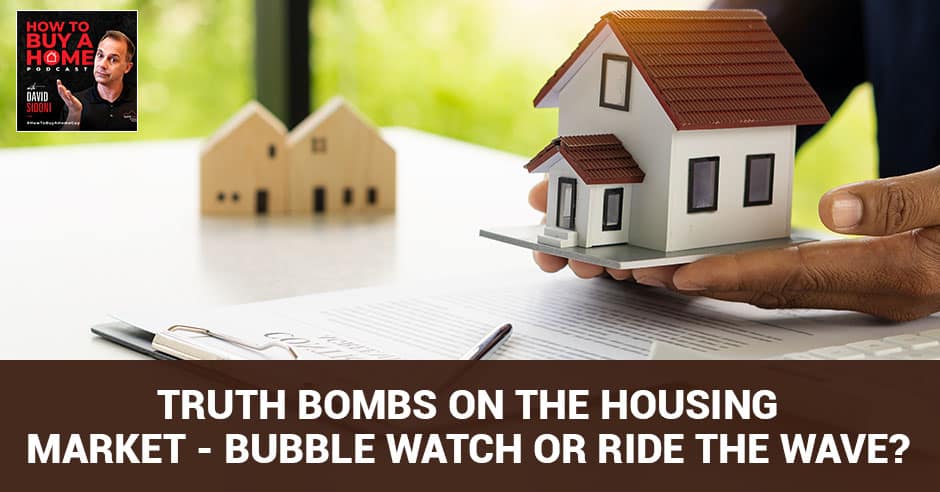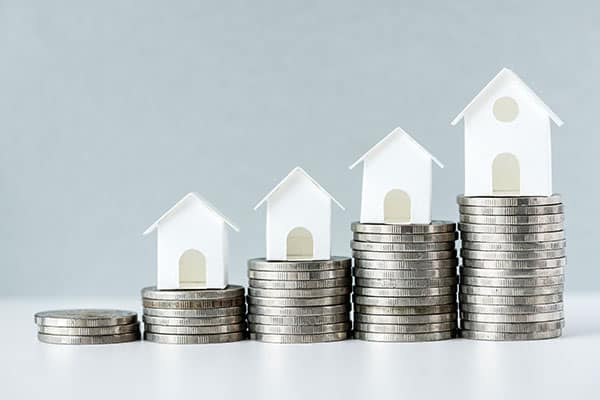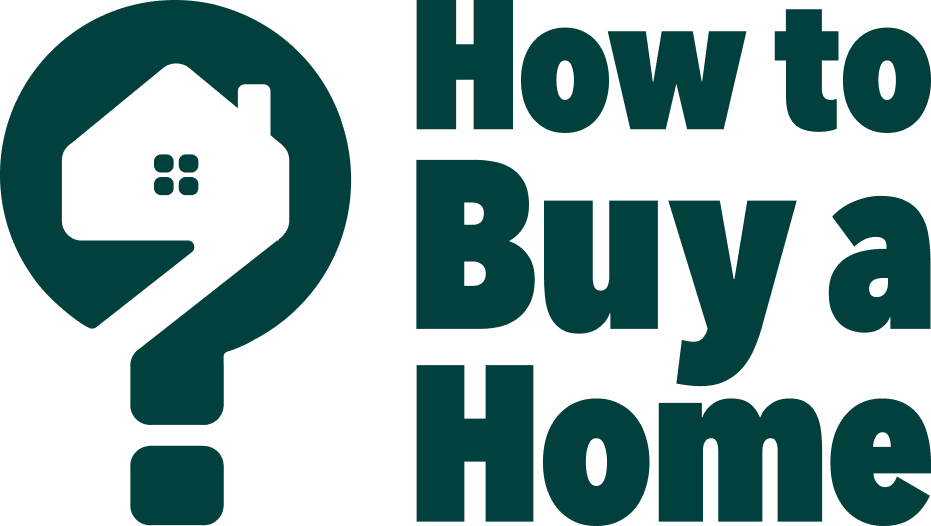
During the last episode, David Sidoni talked about the potential cracks in the house market. This time, we explore the potential of the crash. Will it crash like that dude from the Wide World of Sports? If you don’t know, he’s the original epic fail. Join in as we have more economic data talk and expert opinions on the potential for slower but continual appreciation that First Time Home Buyers can STILL be a part of. Would you bubble watch or ride the wave of this crazy market? Stay tuned!
—
Truth Bombs On The Housing Market – Bubble Watch Or Ride The Wave?
Are The Cracks In The Rocket Ship Of Skyrocket Prices The End Of The Housing Run Up?
In the last episode, I dropped a major truth bomb. The housing market is finally slowing down. There are a couple of things out there that scare me a little bit because we’ve got a potential recession that is so overdue. We’ve got several years of stock and housing markets rising nonstop. We might see a correction sooner rather than later. What does that mean for you and your home purchase plans? Let’s get to it.
—
What’s happening? What’s the Wide World Sport is up with you my How to Buy a Homies? Do you readers know what the Wide World of Sport is? This is before the internet. Here’s what we had to do. We had to get our sports and entertainment on the TV box. It had this antenna sticking up out of it. We got pictures from outer space. It’s very exciting. We had to watch shows at specific times with no streaming and with commercials that you were forced to sit there and watch. No fast-forward and skippy.
When I was eight years old in 1978, every weekend, ABC would air a show called Wide World of Sports. In the beginning, they had the voiceover, this dude, Jim McKay. He was the sports guy back then, and he would talk about the thrill of victory, and then they showed some race car driver spraying champagne at the victory lane. They would say, “The agony of defeat,” and then they showed a video that can only be described as the original epic fail.
You can google it, “The original agony of defeat,” and you can see it for yourself. What’s weird is you are not going to think it’s a big deal because you watch all these dumb videos all the time, and you’ve seen epic fails for your whole life. For us, every weekend, we sat to watch this guy, Vinko Bogataj. He was from Yugoslavia, and that’s not even a country anymore. He was coming down on the ski jump and eats it so hard in such an extraordinary way that all of us in 1978, little eight-year-old me, was excited to sit and watch this guy eat it every Saturday and Sunday.
Now, I want to follow up on the theme of the agony of defeat. Crashing, everyone thinks it’s a housing crash or did you think he was going to burst like a bubble? No, crashing. The big question of the housing crash and what the numbers show. I’m going to get into the five reasons barring any psycho economic global pandemic two, the sequel is back better than ever but this is not going to be a crash. We are going to be looking at a correction.
I’m going to hit you with the top five reasons that we are going to be having a correction since you keep asking about it. We are also going to get into the other side of the coin. We are going to talk about this slow down and cracks that I mentioned in the last episode and what that could mean in how many years we are going to be having this appreciation. That’s huge for you as a first-time homebuyer because you’ve got your spreadsheet, and you are trying to figure out your gains with your appreciating asset, even if it’s a slower gain than what we’ve had in the recent inflated rising numbers. It has been crazy.
Don’t forget, this is still your single largest monthly bill. It’s your shelter payment. Don’t forget that you are not going to get the double-digit appreciation increase but even if it slows down and you get into a single-digit increase, if you are at 3%, 4% or 5%, that’s still the average we’ve had for years. It finally gets to be fixed, unlike your annual rental increases, which are not stopping anytime soon. That’s a double whammy win for you. No agony of defeat for you, you are going to be getting more of your spreadsheet moving into the black every day.
A home is a great hedge against inflation.
In the last episode, I did mention those cracks that I see in the housing market rocket ship because it’s been taken off. I giggled a few times when I said crack because I’m a super real estate adult trapped in a thirteen-year-old sense of humor. I said that this rocket ship was not sustainable and it will correct. It’s going to get to a more normal trajectory. If you are thinking of the horizon, it’s not because it’s going to shoot straight up. That could be soon, and it possibly may have already started but that is not the agony of defeat.
I want to be sure you are not picturing the housing market crashing and tumbling down like good old Vinko eating it on the ski jump ramp and crashing into the spectators. I was never able to get that image out of my head. I’m sure it’s not that big a deal to you because nowadays, you can see worse online and usually with a whole bunch of other clips of horrific stuff all slammed together but back then, that was the only thing on TV.
Let me pump your brains and eye holes. I’m going to give you some data from the economic nerds. It’s another edition of David Sidoni adults for you, so you don’t have to. In last month’s episode, I have spit spit all kinds of facts about some recent warning signs. The fact that they are still a ten-year run-up in the housing in the stock market, a potential recession due at any time with inflation, and the yield curve inversion. Do you remember me talking about the yield curve inversion? No. You wiped it from your memory. I understand.
The idea is that using the historical context while analyzing this current data could give you the one piece of information you are looking for. “What is going to happen to the housing market? Should I buy a freaking house or what?” That’s what you are all wondering. Do you want one-word answers like the newbs posting on social media, all those realtors who got their license a few days ago, and reaching out to you and talking to all the first-time buyers because they are trying to get a client or do you want legit data?
It’s time to get heavy and thick in the weeds. In 2004, housing was on a run like it had never been on before. Prices had been going up for six years. One of the longest runs in history in the economy was booming. Some people started to give warnings of an impending crash, and they were right. A few years later, then they kept saying every year, “It’s coming any time.” A clock’s right twice a day. That’s not how it goes. A broken clock’s right twice a day. They were the market doubled the next few years, and it crashed like a rock.
In the last episode, I proclaimed that I was seeing the warning signs for the beginning of the warning signs. We might have a few years left or I don’t know. A lot of people read that last episode, and all they read was the gloom and doom, but let me remind you, this run-up is not like 2007. If you don’t know what I’m talking about, that’s fine. For those of you who keep saying, “It’s going to crash like the last time,” first of all, do you realize that 2007 was the last time? Let’s make sure we are all on the same page.

Double-digit depreciation, that means 10%, 11%, 12%, 13% or 19% like in 2021. It’s not sustainable but I have laid out why this is not a bubble this time that’s going to pop. I laid it out in episode 29, and that was all the way back in 2019. Again, more bubble talk in episodes 40, 48, 57, and in February 2022 in episode 74. I did that one in February because the beginning of 2022 was bonkers, and I had tons of buyers all over the country telling me that it’s way too crazy to try and buy, so they were going to wait for it to crash.
Here’s the interesting thing. Since that episode when I tried to tell you, “I don’t think this is going to crash,” it has only been a couple of months ago. If you would read and gone, “He’s right,” the median home prices have gone up 2% to 4%. That’s a whole year’s worth. It depends on where you live. On a $400,000 house, that means if you bought it back in February because you read that episode, you would be making anywhere from $8,000 to $16,000 on your $400,000 home by paying a monthly Housing Bill at the beginning of the month.
If you read to the potential recession episode, that was number 29, way back in 2019, and read how a bubble crash was unlikely and a home is a great hedge against inflation since I was talking about the recession, and it can be a good long-term investment, even with a potential recession coming in. If you bought the median-priced home back then $267,000, now the median price is $408,000 that means you would have $141,000 worth of equity. That’s what I was telling you back in 2019. That, my friends, is why I say good unicorn realtors and lenders, we don’t need to flex. We let our clients who read to our stuff all the way back in 2019 do the flex-in for us.
Houses Are Unaffordable Like In 2007
Let’s hit the top five reasons barring that global meltdown if we have another freaking pandemic that this will not be an agony of defeat crash. These are the top five reasons for a non-agony of defeat crash, but a correction, a slowdown with an eventual drop edge. It’s not like 2007, and here’s why. Houses are not unaffordable like they were in 2007.
Be honest, who cursed on the treadmill in the gym when I said, “Houses are not unaffordable?” I get it. Don’t hate on the Messenger. When I say, “Houses are not unaffordable,” that’s a statistic, not a statement. Housing affordability, that’s a calculated statistic in the housing world. It’s got data, matrix, and formulas. The housing may seem totally unaffordable to you now but the stat shows that it was much worse and much more unaffordable before the crash.
This affordability metric is made up of three components, the price of the home, the wages earned by you, and the mortgage rates available. Now, prices are high but wages have increased, and back then, when houses were unaffordable, the mortgage rates were over 6%. We’ve got a chart that shows that in 2007 affordability was at 34.1% of your monthly income. At the end of 2021, that number was 25.8%. That’s going to go up a little bit here in 2022 because we had prices and mortgage rates go up but that’s still going to be below the 34.1% of your monthly income, which means it’s technically more affordable than it was back then, even if you are all angry and don’t think it’s affordable at all.
More qualified borrowers and buyers mean less default on homes.
It Was Easier To Buy A Home In 2007
Number two, it was easier to buy a home back in 2007. Loans and lending guidelines were a joke. People with poor credit, and I’m not saying you are a bad people. That’s what they call it, 550 to 619. They could get what was known as subprime loans. It was pretty easy back then, not now, not even close. Side note, if this worries you, I’ve got you.
If you are in that poor category, don’t worry about it. You can still buy but I highly recommend instead of going out and trying to buy, you are not going to be using a subprime loan or you might be because they’re barely coming back to read episodes 90, 64, 8, and 3. We can bump up that credit score and you can do it fast, and then you can buy with better rates and terms. The chart shows all the sub-620 loans given out in the years leading up to 2007, and you look beyond that, it was a whole bunch, and now it’s almost nothing. You see a huge drop, and it stays way low through now. Subprime loans are not happening.
There Is No Long Foreclosure Crisis
More qualified borrowers and buyers mean less default on homes. Less default homes take us to number three, and that is there is no looming foreclosure crisis. Let me get this out of the way first. I’m talking about foreclosures. If you are one of those people that still think that pet that the pandemic forbearance program means that foreclosures are coming, at this point, I seriously can’t help you. Unless this is the first time, you have ever read the blog.
If you have read any other episodes, you have read about the forbearance and how it’s not going to do anything because the numbers and the data are there, this isn’t an opinion. This is me giving data. If you still think that, then seriously, I can’t deal with your negative vibes. Move on and do your research. Episode 79, read it.
It’s less than 2% of the entire country that’s left in forbearance. As a matter of fact, before this episode, I got a text message from one of my clients who went, “Remember, how I was supposed to go into foreclosure? They did a loan modification for me.” That’s a real-life example. If every single one of the 2% of the people that were left forbearance went into foreclosure tomorrow, that would barely put a dent in our stupid low inventory. I’m not saying I want that to happen but I am saying it wouldn’t make much of a dent, and my buyers would be happy.
Let’s talk about regular old foreclosure numbers because of the subprime lending that went on for the years leading up to October 2008, when the stock market fell and pre-economic meltdown. Before all that, there were already a ton of people in foreclosures. There’s another chart that shows 2.96 million people wearing foreclosures. It started in 2007 into 2008, when we got up to the crash. That means the two years before the crash, we had 2.96 million people in foreclosure. In the last few years, we have had 167,000.

There Are No More House ATMs
Number four, it could be called number three B because it has to do with foreclosures and housing stability. There are no more house ATMs. Houses as ATMs, in 2007 and 2008, homeowners immediately withdrew the equity as soon as their house got it, when the house values fell, negative equity or what we call being upside down.
This led to distressed properties, AKA foreclosures, and short sales, and that tanked the prices big time. This is not going to happen. In 2021, over 40% of the country had over 50% equity in their home. That number has only grown as prices have gone up in 2022 in these first few months. Now, we have ten trillion untappable home equity. The average home right now has over $300,000 in equity.
Low Inventory
The number five reason that this is not going to be a crash is low inventory. It sucks for you when you are trying to buy but it also should be of some comfort to you to realize that when you win a bidding award, you’ve got some time with equity still going. If you’ve got some time before the market corrects because you realize there are not enough homes for sale to sustain, even the normal moves because people move, get job transfers, have a bigger family or smaller family. It moves like life. It’s always going to happen.
Real estate uses this statistic called months’ supply. It’s a stat that determines how many months it would take to sell all the homes on the market if suddenly there were no more homes listed for sale. It’s based on the current demand that’s happening at that moment. There is a graph that shows 9.6 months of inventory in 2007, and then in 2008, that inventory was 9.4 months. That’s right, when everything was crashing.
In 2020, we had 1.9 months of inventory and in 2021, we only had 1.8 months of inventory. If you are worried that we are making the same mistakes this time and that we are destined for another crash like 2007 and 2008, then this must be the first time that you have ever read my blog. Also, there are stats and graphs and it should help calm your panicky anxiety.
Cracks In The Rising Home Price Rocket Ship
I don’t want you to think that I don’t think that you are reading but I get so many people that talk to me about the bubble all the time and the crash and say, “I’m going to wait,” because they think a crash is coming. I had to give it to you one more time. We have covered the bubble myth yet again. Let’s dive into the counterpoint to my last episode warning that we were seeing cracks in the rising home price rocket ship.
Planning gets you options.
The cracks could stay cracks and only slow down a little bit. As I mentioned, we went from a 10% plus to a 9.95%, and maybe we will stay there for a few years, which means we are still going to be going up but a little bit slower. Here’s what some of the experts are saying. Odeta Kushi, the Deputy Chief Economist at First American, tweeted on this very issue and said, “We do need price appreciation to slow down. It’s not sustainable over the long run but high price growth now is supported by fundamentals, short supply, lower rates, and demographic demand. We are in a much different, safer space, with better credit, quality, low DTI,” that’s debt income ratio, “And tons of equity. Hence, a crash in prices is very unlikely.”
Price appreciation will slow from the double-digit levels that the market has seen over the last couple of years. However, experts believe that home values will not depreciate. Slow but not depreciate. The latest survey from the pros, this one is from Pulsenomics. This is a survey of a national panel of over 100 economists, real estate experts, and investment marketing strategists.
This is the latest from the Home Price Expectation Survey. It forecasts home prices will continue appreciating over the next few years based on the average of all 100 plus projections, here are the expected year-over-year home price appreciation rates. In 2022, it’s 9%. Some places already had 4%, 5% or even 6%. In 2023, 4.74%, 2024, 3.67%, ‘25, 3.41%, and all the way to 2026, they are still predicting it to stay up at 3.57%.
You will notice that they went 3.67% in ‘24, 3.41% in ‘25, and then back up to 3.57% in 2026. First of all, how are they doing forecasts all the way to a hundredth? That I don’t understand but the fact that they’re talking about it going up, it’s interesting. That prediction says two things to me. Buying is still going to suck for a little while, but it’s going to suck less when the annual appreciation is at 19.5% like it was in 2021. Again, it’s going to be hard but as I have said multiple times, nothing good in life is easy. Go back and read the episodes 60s and 70s of the show and get your belief on.
The second thing it tells me, according to them, is that some of you out there still have time to get some equity and that can be a cushion for your long-term plans for when, not if, this housing correction comes along. It’s simple. If you wait to buy a home, you are going to pay more in the future, unless you are going to wait too long, and then you are going to be too much rent. However, if you buy now, you will be in the position to make future price increases work for you or you can use the equity that happens if you decide to stay there to ride out a flat or downward trending market.
That’s why I talked about the compromise and thinking longer-term when you are thinking about buying in 2022 and 2023. Get in and ride some equity and then be cool and stay there to ride it out for the coming correction. You are going to save tons of money by locking in a fixed monthly payment versus the gamble of rising rents during the same time period.

I don’t know if this forecast is going to come to fruition but if it does, the numbers are pretty sweet. The only thing forecasts are educated, best case scenario guesses but it’s based on historical data and historical patterns. Don’t believe all the negative hype. I’m going to tell you if it starts to slow. In fact, I did in the last episode. For now, it’s still got a lot of room to grow, and I did tell you it was slowing but it’s slowed from a 10% to a 9.95%.
Don’t Believe The Yellers
When you start to see people out there freaking out, remember what I always like to say, “Don’t believe the yellers.” Stephen A Smith, “Louder is not smarter.” If you are reading correctly, you should find some positive things, no matter what stage you are in with these potential forecasts. If you are brand-new and you need 6 months, 1 or 2 years to plan before you can buy a home, first of all, almost every single one of my first-time buyers that I had all over the country, when they tell me they need two years, once they get a plan implemented and get into a real guided unicorn plan, they see that expected time. They cut it in half at least, even realtors talk about it.
Someone comes in and says, “I got six months.” The good ones go, “Great. We will be good in three months for them.” It’s the way it goes. As I have said, you can drive from LA to Nashville on your own without a GPS or Google Maps, if you go East, you are going to get there. If you get a unicorn and you plug in the map, you can shave days off your trip.
For you planning and staying educated is huge. Do me a favor. Don’t just save and then pull your head up to see how the market is doing. Get a guide, learn along the way, and be prepared. In a year, you might want to move quickly, jump on the remaining equity in the run-up, and ask your friends or relatives for money for a loan at that time, so you can jump in before you miss it. You might want to change your budget, change your saving numbers, reduce some debt, cash in the bonds that your grandma gave you when you were eight years old or decide you know that you are going to tap into your 401k.
As a matter of fact, I was doing a TikTok live. It was a free Q&A with me. Check your feed and look me up @HowToBuyAHome on TikTok. I talked to this guy, and no matter what was going on with the forecast. He asked questions, and then he went on camera, ready to go. He started asking me about the 401k. I was like, “I think that might work out for you.” This was happening for him now, but if he had talked to someone six months or a year ago, he wouldn’t be rushing to try to figure out if using his 401k was the right thing for him because he wouldn’t have been working a plan with a unicorn.
No matter which way the forecast goes, one way or the other. If you are planning and you have a saving route planned with professional guidance from a unicorn realtor and a lender, that’s going to give you the O word, Options. Planning gets you options. The options mean that you have less of the C-word, Compromise. Planning equals options, equals less of the C-word. That would be such a confusing T-shirt.

If you are going to be closer than six months, maybe this will kick you into high year. If you are ready to rock, maybe you cancel your Memorial Day weekend plans, and you go out, find a unicorn, get yourself pre-qualified, and then you go look at some homes on Memorial Day weekend. By Labor Day weekend, you can host the big barbecue in your awesome brand-new backyard and sit in there with maybe 2% or 3% equity in your pocket. That’s what is going to happen in the summer. No matter where you are in your planning phase, check out these numbers. If the cracks stay in the cracks, and the forecast from over 100 nerds is correct, you are going to be positioned to take advantage of it.
If you purchased a home in January 2022, it would have cost you the median price of $360,000. If you factor in the forecast of appreciation from the home price expectation survey that we are talking about, you could accumulate $96,000 in household wealth over the next few years. Time for one last truth bomb. In the last episode you read on the show, I didn’t have time in my day to do that but because I knew that spring and summer of 2022 are the most crucial and radically unstable times in the history of first-time home buying.
The first beginning of 2022 has been nuts. My several years of working in this market and studying the market research and the super dork studying have shown me that this time, it’s crystal clear that this is insanity. I was talking to one of my unicorns about if we are making it work for people now at this time in 2022, then something is working here.
I was wiped out trying to squeeze in the show. I ended up crashing on the couch at 7:00 PM, and then I woke up at 2:00 AM to dig into the research for this episode, and I kept writing until 7:00 AM. If everything that I researched from 2:00 to 7:00 AM was recorded, this show would have been long. It would have been super fun. No, I didn’t think so but I didn’t do that.
I took all the data, articles, facts, figures, and metrics, and I boil it down for you. I present them to you on the show to help you make the best decision possible for you, your family, your plants or your animals. Remember when you see other people giving real estate advice, think about that. How long do you think it took them to craft their loud yelling rant or snarky negative philosophy? Do your research. How much help are they offering you besides that one time they came on your feet and started yelling at you? How much time are they dedicating to you, the first-time homebuyer who’s desperately seeking some clarity?
Fear and snark suck but they sell. They get your attention but always make sure this is helping you move forward. Let’s help you move forward. If this has helped you in any way, please take 94 seconds to write a review and put it up there. It can help others find the show. I don’t have to put in those eighteen-hour days and fall asleep on my couch. Write a review on Apple or Spotify. This is a big one I want you to try, comment on TikTok for me. Go to @HowToBuyAHome, look up a video, and in the comments say, “I’m a homie.” It will confuse everybody. I will love it.
Share this show in a text with your friends with who you want to succeed. If it does work for them, you can buy a house on the cul-de-sac, and then you will be having the best raging block parties in the neighborhood. Check out the How to Buy a Home podcast, YouTube page, and find me @DavidSidoni on Instagram. Whatever you do, for God’s sake, keep on reading.
If you want no BS, unfiltered truth bombs, and accurate information made for you for first-time homebuyers, subscribe, keep up, and let’s start a revolution. Let’s tell the real estate industry, “You are not going to take it anymore.” You demand better. You are not going to take it. You want better education, more help, and some freaking service from the people out there who are supposed to help you and be empowered.
You don’t want to be a paycheck for the person that you are working for, and that’s cool. I believe it. Let’s start a revolution. It’s your right. The great thing is you know the right way to move forward and get your plan going no matter what the future brings. Do it with a unicorn. Use that and all the knowledge that I spit into this. You can do this.
Important Links
- How Do I Time My Home Purchase If A Recession Is Coming? – Previous episode
- Should I Buy My First Home Now, Or Wait? Question Of The Week – Previous episode
- Bubble Home Buying: What First-Time Homebuyers Need To Know – Previous episode
- It Will Cost You Much More To Wait For Things To Cool Down – Previous episode
- The Bubble Bursting And A Market Crash And What To Do As A First Time Home Buyer – Previous episode
- Credit Repair For 300-669 – “Bad” Or “Fair” Credit Scores – Previous episode
- Credit Tips For First Time Home Buyers From Jeanne Kelly – Previous episode
- Quick Credit Tips For First Time Home Buyers – Previous episode
- What Do You Need To Know About Credit – Previous episode
- Foreclosures, Insider Deals, And Buying Your First Home As An Investment – Previous episode
- @HowToBuyAHome – TikTok
- Apple Podcasts – How to Buy a Home
- Spotify – How to Buy a Home
- How to Buy a Home podcast – YouTube
- @DavidSidoni – Instagram
This podcast was started for YOU, to demystify things for first time home buyers, and help crush the confusion. After helping first timers for over 13 years, I knew there wasn’t t a lot of clear, tangible, useable information out there on the internet, so I started this podcast. Help me spread the word to other people just like you, dying for answers. Tell your friends, family, and perhaps that random neighbor you REALLY want to move out about How to Buy a Home! A really easy way is to hit the share button and text it to your friends. Go for it, help someone out. And if you’re not already a regular listener, subscribe and get constant updates on the market. If you are a regular and learned something, help me help others – give the show a quick review in Apple Podcasts or wherever you get your podcasts, or write a review on Spotify. Let’s change the way the real estate industry treats you first time buyers, one buyer at a time, starting with you – and make sure your favorite people don’t get screwed by going into this HUGE step blind and confused. Viva la Unicorn Revolution!
Instagram @DavidSidoni
Tik Tok @howtobuyahome

